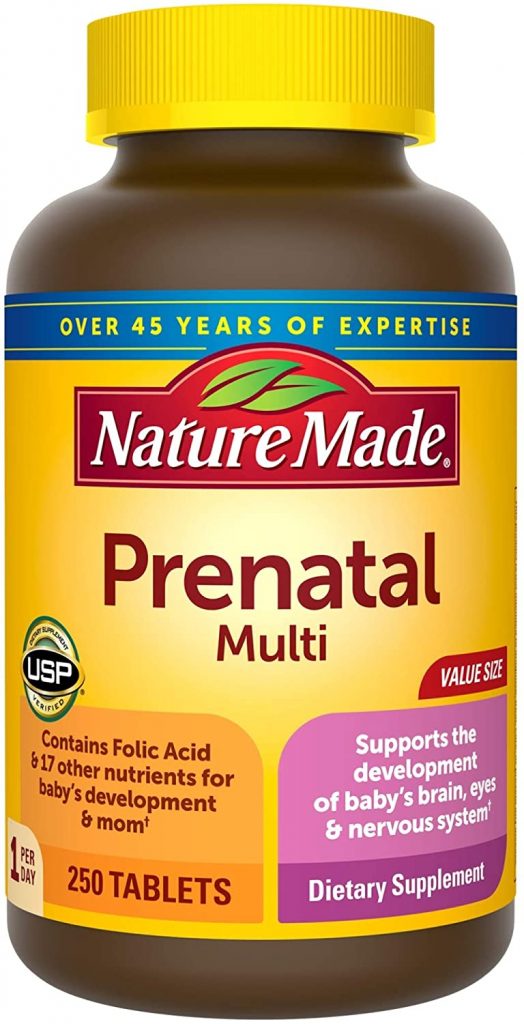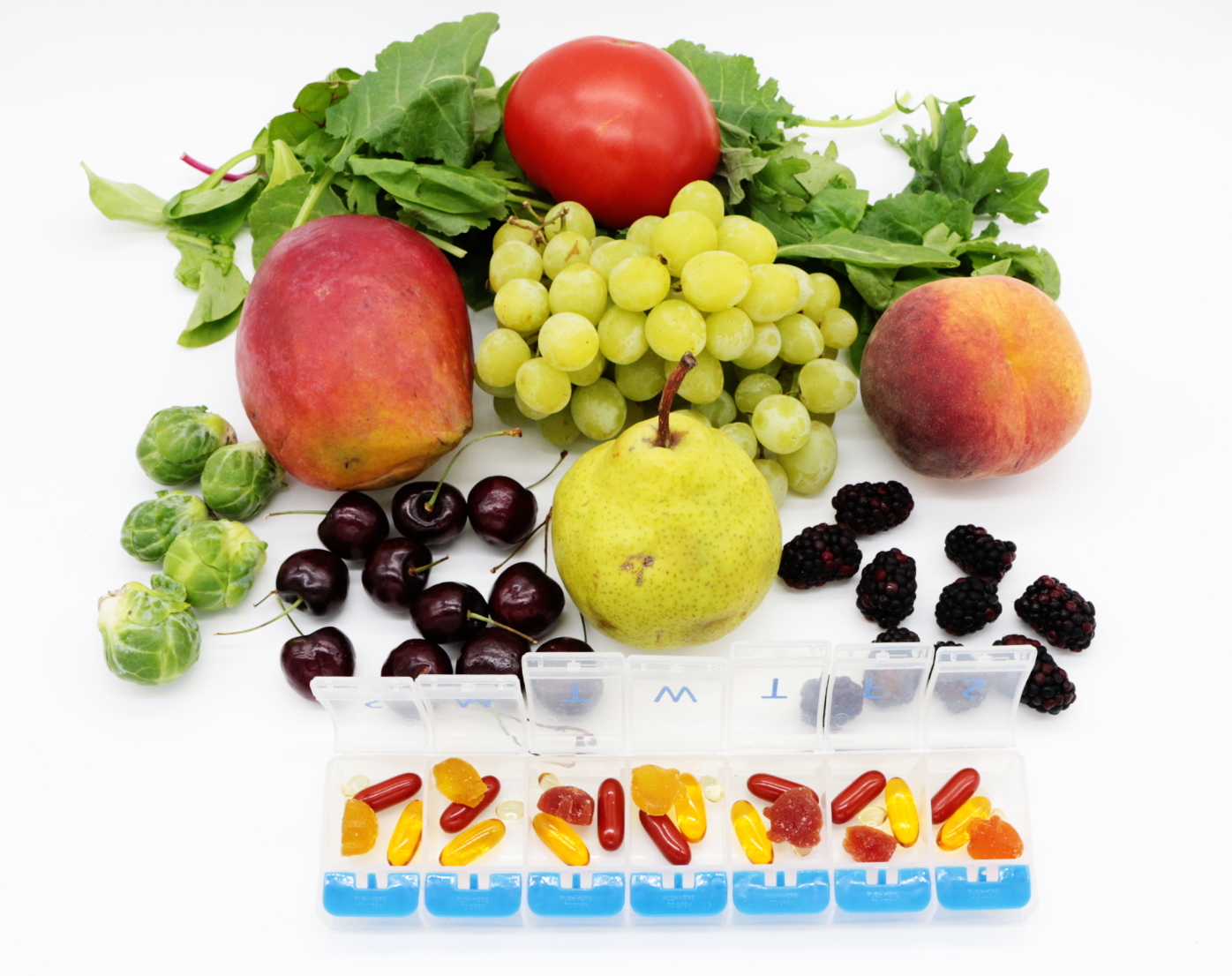Prenatal vitamins consist of vitamins and minerals that are crucial for health and development of your baby.
As discussed in our previous posts about diet, nutritional requirements are more critical in pregnancy; deficiency of certain nutrients such as folic acid (folate), calcium, iron and many other essential nutrients may affect reproductive health and the possibility to get conception; deficiency of the above nutrients may also affect fetus development and pregnancy health. When there is a lack of the essential nutrients in our diet, prenatal vitamins can help to fill the nutritional gap to promote better chance of natural conception and the health of baby and mommy in pregnancy.
When should you start taking prenatal vitamins?
As it takes time for nutrients build up in the human body, women should take a prenatal vitamin with folic acid before conception to make sure that their bodies have sufficient vital nutrients necessary to support a healthy pregnancy immediately after conception.
One example of immediately required nutrients is folic acid aids that help to prevent neural tubal defects. Neural tubal defects often occur in the first month of pregnancy when the neural tube is growing.
Over the counter prenatal vitamins
Over-the-counter prenatal vitamins provide generally safe doses of each nutrient. Prescription prenatal vitamins often contain the maximum level of folic acid which needs approval by the doctor. Be sure to look for in prenatal vitamins meet or slightly exceed doses recommended by Webmd.com, which is listed below.
- 400 micrograms (mcg) of folic acid.
- 400 IU of vitamin D.
- 200 to 300 milligrams (mg) of calcium.
- 70 mg of vitamin C.
- 3 mg of thiamine.
- 2 mg of riboflavin.
- 20 mg of niacin.
- 6 mcg of vitamin B12.
- 10 mg of vitamin E.
- 15 mg of zinc.
- 17 mg of iron.
- 150 micrograms of iodine
DHA also needs to be included in your prenatal supplements. DHA is crucial for brain development of fetus and maintains pregnant women’s physical and mental health.
Other things you need to know about prenatal vitamins
Some gel capsulated prenatal vitamins can cause nausea. If that happens to you, talk to your healthcare provider. Your doctor will be able to prescribe a liquid or chewable prenatal vitamins for you.
Always look at Recalls of Foods & Dietary Supplements on FDA website. Not all contaminations and violations can be caught by the FDA but we can at least avoid the reported unsafe products.
Choose prenatal vitamins:
Supplementing vitamins and minerals in pregnancy is important for health of both mom and baby. There are different brands on the market. Some have more natural ingredients while others contains more synthetic ingredients. What to choose depends on your preference. Generally, natural vitamins have higher potency in human body, such as vitamin E, and folate.
A paper studied the maternal supplementation with natural or synthetic vitamin E, and found Natural vitamin E has better absorption rate and represented a high vitamin E Levels in human colostrum. Therefore, natural vitamin E is always preferred to synthetic vitamin E.
Folate is the natural form of vitamin B9. It sometimes is supplemented as folic acid, which is a synthetic compound and more stable than folate. Scientific studies bring up a raising concern that folic acid may mask deficiency of vitamin B12. As the ability of conversion from folic acid to its metabolically active is limited in the human body, unmetabolized folic acid can appear in the systemic circulation, even after low-dose application. The unmetabolized folic acid has an adverse effect that masks vitamin B12 deficiency. Deficiency of vitamin B12 has been linked to neural tube defects and jaundice. If you choose to supplement folic acid alone, it’s necessary to supplement vitamin B12 at the same time. Natural folates without adverse effect of synthetic folic acid are preferred to synthetic folic acid.
When choosing prenatal vitamins, reading labels and knowing the ingredients and supplement facts. Following are some trustworthy prenatal vitamin brands.
- # 1 seller on US market: Nature Made is cost-effective, and consumption is convenient with serving size 1 softgel per day.
Natural Made contains natural vitamin E, and DHA. Although Natural Made supplements folic acid instead of folate but Vitamin B12 is also suplemented in the formulation.


- Best selling natural source prenatal vitamins: Garden of Life Vitamin Code Raw Prenatal Whole Food Vitamin for Mom and Baby. It is much more expensive than Nature Made, and serving size is 3 tablets per day.
As stated from the label, it is made from raw whole foods, and supplements all natural vitamins. The natural enzymes and probiotics that comes with the raw whole foods are also included in the tablets.
This vitamin does not provide DHA, therefore a seperate DHA source is needed. Calcium is also lack in this product. If you drink sufficient milk, it is not going to be an issue.
- Best selling gummy prenatal vitamins: Vitafusion Prenatal provides great value, yet high quality.
It provides natural vitamin E which is the preferred form of vitamin E. This gummy supplements folic acid and together with vitamin B12.
The downside of this gummy(all gummy type prenatal vitamins) is there is no iron and calcium included.
UpbabyUp is not affiliated with the brands mentioned in this article.
